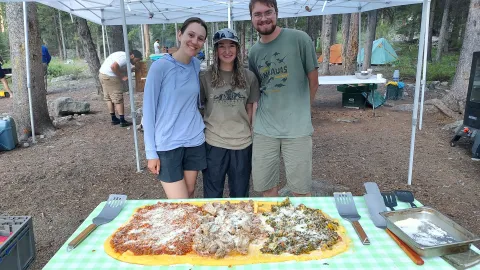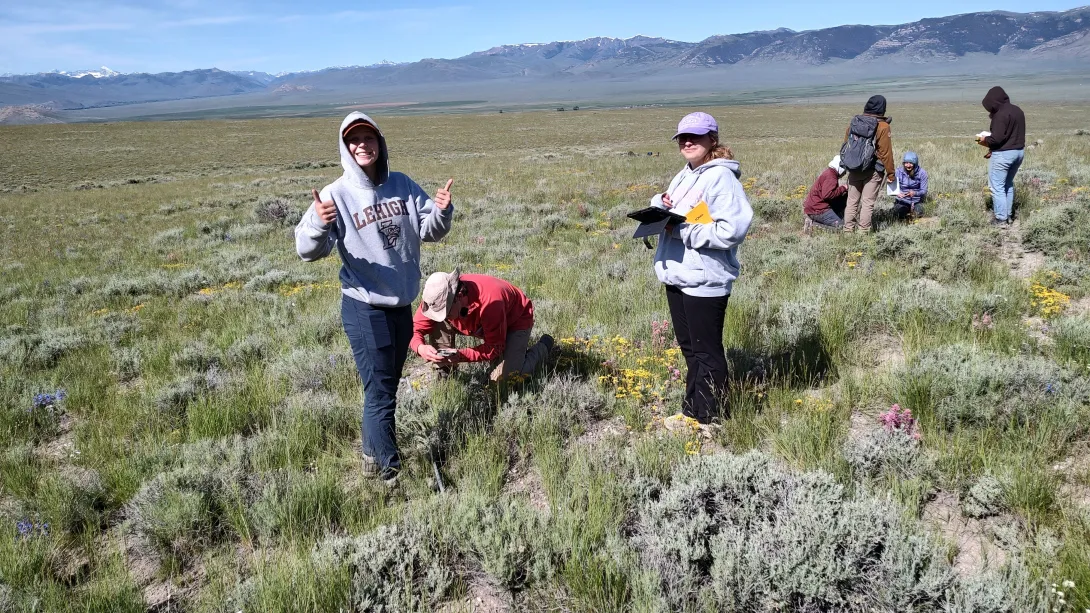Who should apply to Lehigh for their Field Camp?
Read the following description of camp before preceding to the next step. If you cannot meet these expectations, you should choose another camp.
Lehigh Field Camp is a mentally- and physically-demanding experience. We do a lot of movement, including hiking, every day. If you cannot hike, you should choose a different camp. Students who should choose Lehigh as their field camp experience are those who are motivated, curious, and want to be challenged. There are huge intellectual and interpersonal rewards for the engaged student, but in the end, it comes down to the attitude of the individuals.
Students who do not enjoy the outdoors, camping, cold water, infrequent showers, strenuous hikes, or cooking and cleaning up their own meals really should look for other field camp options.

Hiking is important to your success at camp, but all you need to be able to do is maintain a slow, steady pace. What we are talking about is covering 1500' vertical and several kilometers a day. If you cannot do this, then realistically, you should be looking at other field camp options. You will be in good shape at the conclusion of camp.
There are some things at camp we cannot control, like the weather, for example. Here is the temperature profile for some recent camp years. It was a cold and rainy summer in 2009. The 2010 summer was quite a bit warmer....but then again, we traveled to the desert southwest that year. In 2011, we again traveled to the northern Rockies, and here is the temperature profile for 2011. We had some pretty cold days and it snowed hard on one of them.
In reality, most of the time the weather and the scenery are glorious - sort of like this picture taken in Idaho. On days like this, you get to lay out and soak up the sun's rays as you work on your projects.
However, sometimes clouds appear like this one did in the Badlands. Or worse, mother nature sometimes throws you a curveball and forgets that it is supposed to be summer, and this can happen, as it did on June 10th, 2008 in Pinedale, Wyoming. We even had a hailstorm that lasted for about an hour, on 28 June, 2009. You must be prepared for cold, wet, and windy weather should it arise.
In summary, we are a camping camp, outdoors all the time, and doing lots of outdoor activity. We prepare the best camp food ever, and have a great time doing it. If you are ready for the challenges that reality creates, and want to learn the best geology and environmental science the Rockies can dish out, then join us.
We welcome students from all schools to apply!

